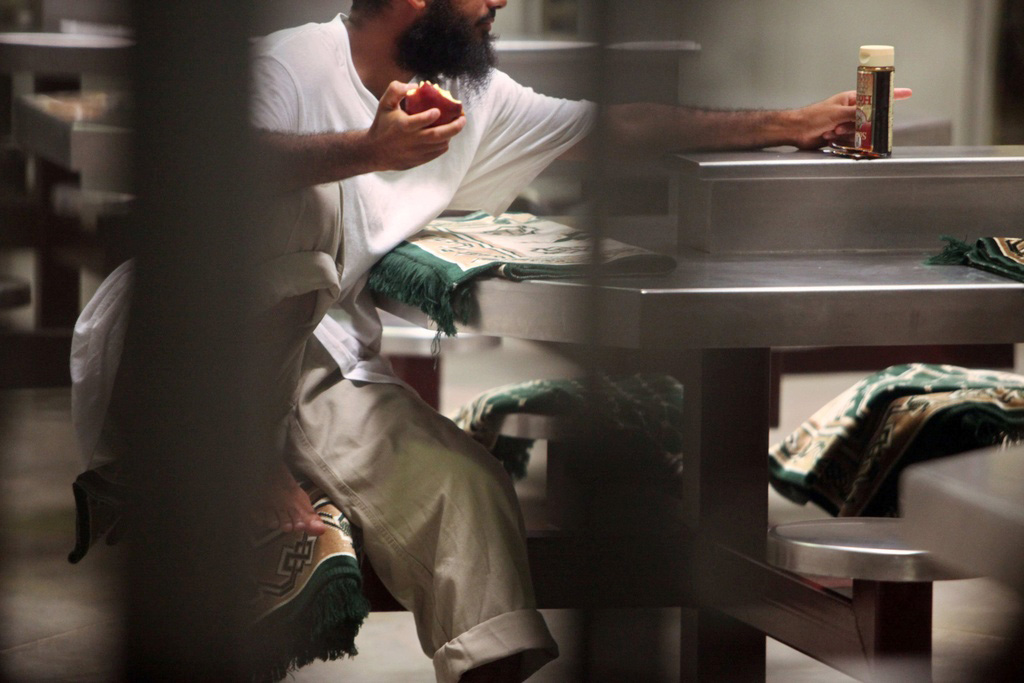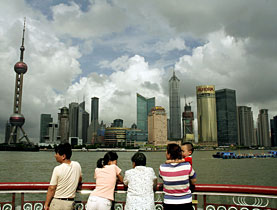Former Guantanamo inmates arrive in Jura

Two former detainees held by the United States at the Guantanamo Bay detention camp have begun new lives in a French-speaking region of Switzerland.
“Things are going well and we want to provide a little quiet,” Charles Juillard, the president of Jura cantonal government, told local parliamentarians. “We want to ensure them greater peace in the coming days.”
The parliamentarians erupted into applause at Juillard’s statements on Wednesday.
The two brothers, ethnic Uighurs from China, were admitted to the canton on Tuesday morning on humanitarian grounds. They will be supported by a group that helps immigrants, the justice ministry said in a statement.
Three Uighurs were transferred to Georgia on Tuesday. Since 2002 the US has resettled more than 580 detainees. There are 183 detainees still at the camp.
“The United States is grateful to the government of Switzerland and the canton of Jura for their willingness to support US efforts to close the Guantanamo Bay detention facility,” the US Department of Justice said in a statement, adding the countries would “continue consultations regarding these individuals”.
Juillard said Jura’s two new residents are adapting to their new lives in northwestern Switzerland but gave no further information, including where they are living, to guard their privacy.
The men have “expressly” promised to “respect the law in force” and to learn French as they work to integrate themselves into society. They have also agreed to look for jobs and to provide for their basic needs, the ministry said.
Tradition of openness
The Swiss federal government agreed to an offer from Jura authorities to accept the former detainees. A third detainee, an Uzbek, arrived in canton Geneva at the beginning of the year.
Swiss authorities said the transfer of the two men had been organised in collaboration with US officials. Swiss Justice Minister Eveline Widmer-Schlumpf has said in the past that the US would shoulder a “good part” of the resettlement costs.
Mathieu G. Racicot, a journalist with Le Quotidien Jurassien, a Jura newspaper, told swissinfo.ch it was no surprise the canton stepped in to accept the detainees.
“There’s very much a tradition of openness in Jura,” he said. “Jura fought for independence from canton Bern – the canton is only 30 years old.
“I don’t want to say people support the Uighur cause for independence – I am by no means saying that – but I think people here maybe feel a bit of solidarity toward others who feel the same way.”
Racicot said not everyone welcomes the detainees and reaction in Jura’s bistros tends to centre on three things: “Some asked, ‘Why do we have to clean up the American mess?’ Others were concerned with costs and there is talk of security.”
The Uighurs from Xinjiang province in northwestern China spent eight years at Guantanamo but were never charged with any offence. US authorities said the men had “no contacts of any kind with terrorist organisations”, Amnesty International reported.
Guantanamo Uighurs
As many as 22 Chinese Uighurs were detained at the camp, many on suspicion of being members of the al-Qaida supported East Turkestan Islamic Movement. The US released four Uighurs to Bermuda last year.
Earlier this month the US Supreme Court ordered another seven Uighurs be released, including the two brothers who ended up in Switzerland. Five of those seven rejected offers to be resettled in Palau and another unidentified country, the New York Times reported. None wanted to be returned to China.
China says the two brothers now in Jura represent a “significant danger” and considers them separatists and “terrorists”, a claim Swiss authorities refute. The Chinese said the same about the men who resettled in Bermuda.
Uighurs, a Turkic-speaking group of Muslims, have been displaced as the largest ethnic group in their homeland by an influx of Han Chinese. Unrest in the region in mid-2009 left hundreds dead, mostly Han Chinese, as Uighurs rioted in Urumqi, the capital of Xinjiang. Chinese authorities executed nine Uighurs in November on murder charges.
Tim Neville, swissinfo.ch and agencies
Business between Switzerland and China could suffer in the fallout of the resettlement, though Swiss trade experts in the past have downplayed the impact that accepting the Uighurs could have on Chinese-Swiss relations.
In 2009 a Chinese business delegation penned trade deals worth more than $300 million (SFr318 million) with Swiss companies, including large contracts with ABB to provide a Chinese nuclear power company with circuit breakers. Switzerland’s Glencore, an industrial supplier of raw materials, also signed large deals with Chinalco, a major producer of the world’s aluminium.
China is the fourth-largest market for Swiss exports, with watches enjoying particular popularity among Chinese consumers. Combined with Hong Kong, China snaps up one out of every four Swiss watches bound for foreign markets.
In 2008 Switzerland exported goods worth SFr6.1 billion to China and bought about SFr5 billion worth of Chinese goods.
The Uighurs are a Turkic-speaking Muslim people, who live mainly in China’s northwestern province of Xinjiang.
The area is not only energy-rich but also strategically located in Central Asia.
In recent years there has been unrest in the area, blamed by Beijing on separatists and “terrorists”.
Rights groups and exiles say the unrest has been sparked by Chinese attempts to suppress Uighur religious and cultural rights.
Other critics say that ethnic tension has been stoked by inequalities in the benefits arising from central government investments in the region.

In compliance with the JTI standards
More: SWI swissinfo.ch certified by the Journalism Trust Initiative





You can find an overview of ongoing debates with our journalists here. Please join us!
If you want to start a conversation about a topic raised in this article or want to report factual errors, email us at english@swissinfo.ch.